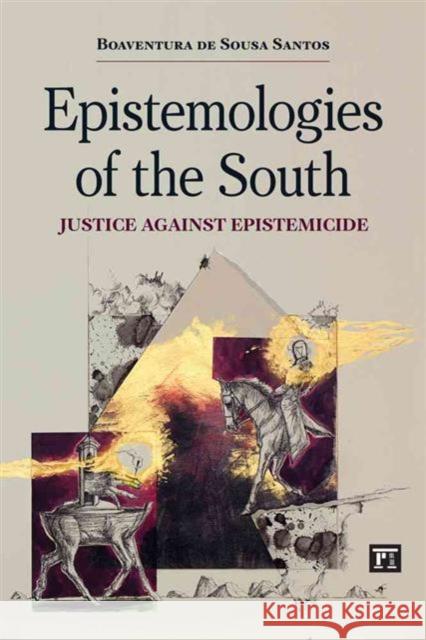Epistemologies of the South: Justice Against Epistemicide » książka
Epistemologies of the South: Justice Against Epistemicide
ISBN-13: 9781612055459 / Angielski / Miękka / 2014 / 284 str.
Epistemologies of the South: Justice Against Epistemicide
ISBN-13: 9781612055459 / Angielski / Miękka / 2014 / 284 str.
(netto: 172,19 VAT: 5%)
Najniższa cena z 30 dni: 178,58 zł
ok. 22 dni roboczych
Bez gwarancji dostawy przed świętami
Darmowa dostawa!
In a world of appalling social inequalities people are becoming more aware of the multiple dimensions of injustice, whether social, political, cultural, sexual, ethnic, religious, historical, or ecological. Rarely acknowledged is another vital dimension: cognitive injustice, the failure to recognize the different ways of knowing by which people across the globe run their lives and provide meaning to their existence. This book shows why cognitive injustice underlies all the other dimensions; global social justice is not possible without global cognitive justice. Santos's argument unfolds in two inquiries. No matter how internally diverse, Western Modernity provided the knowledge underlying the long cycle of colonialism followed by global capitalism. These historical processes profoundly devalued and marginalized the knowledge and wisdom that had been in existence in the global South. Today, working against epistemicide is imperative in order to recover and valorize the epistemological diversity of the world. Such recovery and valorization is the book's second inquiry and is based on four key analytical tools: sociology of absences, sociology of emergences, ecology of knowledges, and intercultural translation. The transformation of the world's epistemological diversity into an empowering instrument against hegemonic globalization points to a new kind of bottom-up cosmopolitanism. It would promote a wide conversation of humankind, celebrating conviviality, solidarity, and life against the logic of market-ridden greed and individualism and the destruction of life to which world populations large and small are condemned by the dominant forces of globalization.











